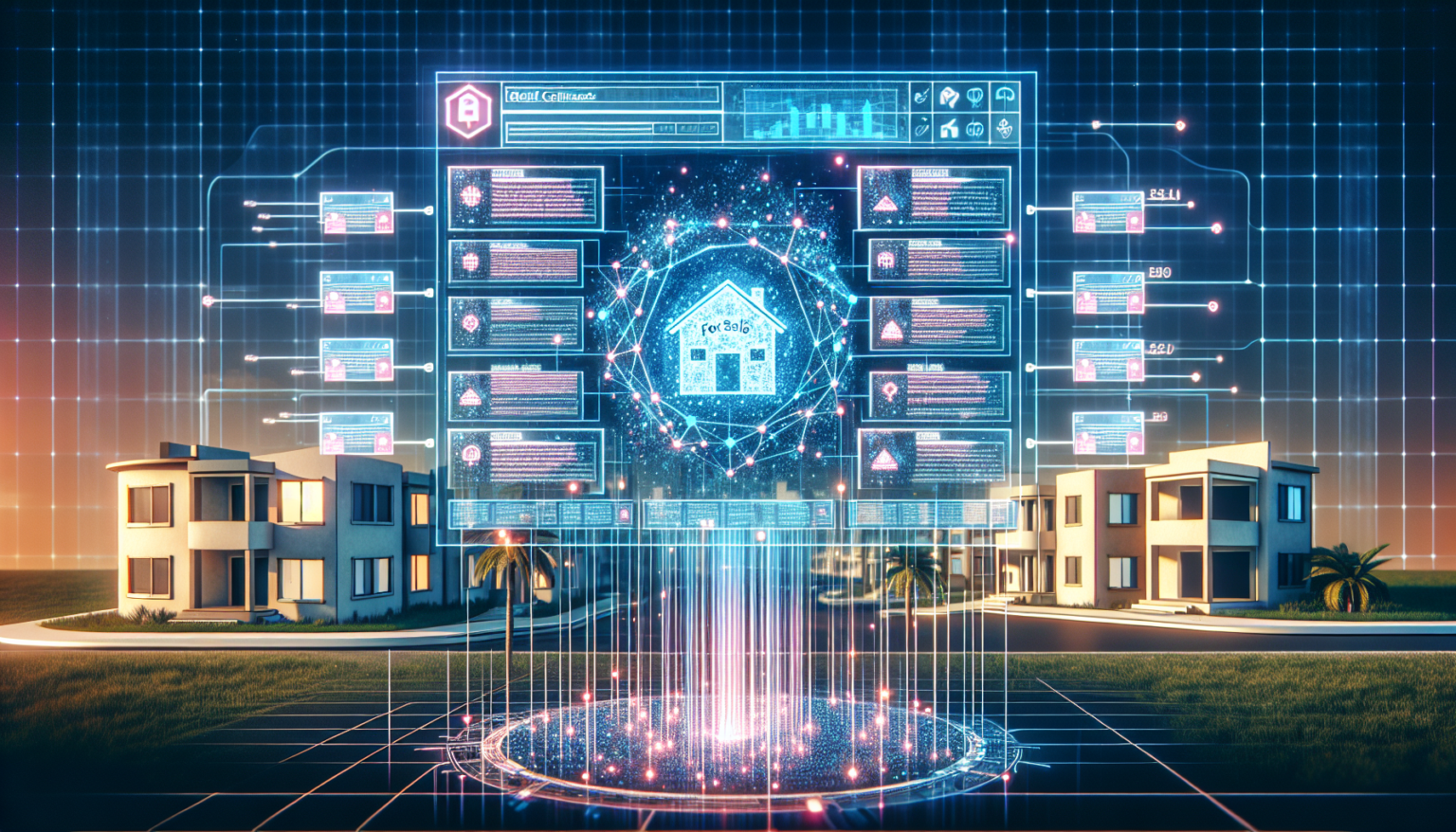The Role of Smart Contracts in Real Estate Transactions
Understanding Smart Contracts
Smart contracts are self-executing contracts with the terms of the agreement directly written into lines of code. They operate on blockchain technology, which ensures transparency, security, and immutability. Unlike traditional contracts, smart contracts minimize the requirement for intermediaries, which often leads to reduced costs and increased efficiency in transactions.
Advantages of Smart Contracts in Real Estate
-
Enhanced Transparency
Transparency is crucial in real estate transactions, where trust is paramount. Smart contracts are recorded on a blockchain, allowing all involved parties to access the same data in real-time. This ensures that all terms, conditions, and transaction histories are available and verifiable, reducing the chances of fraud. -
Reduced Transaction Time
Traditional real estate transactions can take weeks or months to finalize due to paperwork, multiple verifications, and the involvement of various intermediaries like banks, agents, and attorneys. Smart contracts automate these processes, executing transactions instantly once pre-defined conditions are met, significantly speeding up closing times. -
Cost Efficiency
By eliminating the need for intermediaries, smart contracts can reduce costs associated with real estate transactions. No brokers or agents are necessary as the contract’s execution is automated. This not only cuts fees but also minimizes administrative costs related to document handling and data management. - Increased Security
The use of encrypted blockchain technology provides a secure environment for executing real estate transactions. Smart contracts are tamper-proof and immutable, which means once they are deployed, they cannot be altered or deleted. This level of security is crucial in protecting sensitive information and maintaining the integrity of real estate transactions.
How Smart Contracts Function in Real Estate Deals
-
Creation of the Smart Contract
The first step involves drafting the smart contract, specifying all terms and conditions. This could include details such as the property’s price, payment terms, and contingencies like inspections or financing conditions. Legal parties must review these terms to ensure compliance with local laws. -
Integration with Oracles
In some cases, smart contracts rely on external data to execute certain conditions. Oracles are third-party services that provide real-world data to the blockchain. For instance, a smart contract could use an oracle to verify that a buyer has obtained financing before proceeding with the sale. -
Escrow Services
In traditional transactions, funds are held in escrow until all conditions of the sale are met. Smart contracts can automate this process by holding digital assets or cryptocurrencies in a blockchain-based escrow account. Once all contractual obligations are fulfilled, funds are automatically released to the seller. - Title Transfer
Upon successful completion of all process stages, smart contracts can facilitate the transfer of property title. This can be achieved using non-fungible tokens (NFTs) which represent ownership of a specific asset on the blockchain. The transfer process becomes recorded on the blockchain, ensuring all details are accurately captured and accessible.
Real Estate Tokenization
Tokenization refers to the process of converting rights to an asset into a digital token on a blockchain. In real estate, tokenization allows for fractional ownership, where multiple investors can buy shares of a property through digital tokens. Smart contracts play a vital role in managing these tokens and the associated rights, such as rental income distribution or voting on property management decisions.
Legal Implications of Smart Contracts
While smart contracts offer numerous benefits, they also bring legal challenges. The enforceability of smart contracts can vary by jurisdiction, presenting potential issues in case of disputes. Parties involved must be aware of the laws governing smart contracts in their region to ensure compliance and valid execution. Engaging legal professionals familiar with blockchain technology and smart contracts is essential when structuring these agreements.
Limitations and Challenges
-
Technology Adoption
Although the potential of smart contracts is clear, the real estate industry has been slow to adopt blockchain technology. Resistance from traditional stakeholders and the complexity of integrating new systems with existing ones are significant barriers. -
Regulatory Environment
The regulatory landscape surrounding blockchain and cryptocurrencies is constantly evolving. Uncertainty in legal frameworks may hinder the widespread implementation of smart contracts in real estate transactions. Stakeholders must remain informed about regulatory changes that could impact their operations. - Complex Contractual Relationships
Real estate transactions often involve various parties with diverse interests. Crafting a smart contract that adequately reflects all parties’ rights and obligations can be complex. Thorough understanding and clear communication among stakeholders are necessary to create effective smart contracts.
Conclusion: Future of Smart Contracts in Real Estate
Smart contracts have the potential to revolutionize real estate transactions, offering transparency, efficiency, and security. Their ability to facilitate automation, reduce costs, and allow for fractional ownership through tokenization positions them as a transformative force in the industry. However, addressing legal challenges and fostering technology adoption remain critical to their successful implementation. Stakeholders must continue to engage in dialogue around these issues, paving the way for effective solutions that harness the power of smart contracts in real estate.
With ongoing advancements in blockchain technology and growing acceptance in the marketplace, the role of smart contracts in real estate is set to expand dramatically. When adequately executed, they could minimize friction in transactions, create opportunities for broader participation, and promote greater equity in access to real estate investments.














